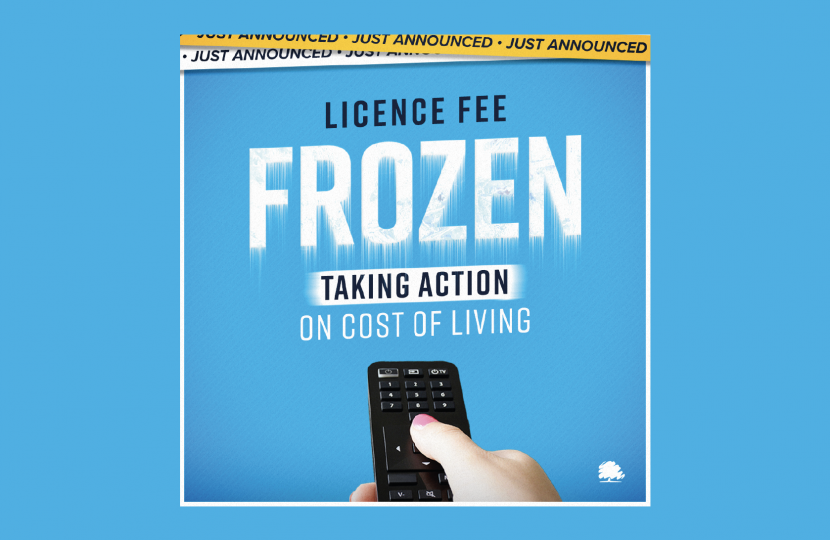
- Fee will remain at £159 until 2024 before rising in line with inflation for four years
- Households will not see any change to the licence fee until 1 April 2024
- New agreement gives broadcaster certainty while protecting public from price hike
The TV licence fee has been frozen for two years as the government moves to support families in the face of rising living costs. The plans for the new licence fee settlement cover a period of six years with the fee remaining at £159 until 2024, then rising in line with inflation for the following four years. The new changes will take effect from 1 April 2022 until 31 March 2028.
Commenting on the announcement Burnley and Padiham MP Antony Higginbotham, who ran his own survey on what residents thought of the licence fee, said:
When I asked residents their views on the BBC licence fee, over 80% of those who responded said it did not offer value for money.
That is now being reflected in Government policy, with a freeze on the licence fee for the next two years. But more importantly, this announcement is about kickstarting a review into the future framework of the BBC, where all views will be heard.
My take is that in an age where we have an abundance of choice for media and content, (just look at Netflix or Disney+) I don’t think the answer is a compulsory fee for content some don’t watch or see.
There are better solutions, which will still preserve the importance of local news and services. And with a tighter funding model for the next 2 years, I believe the BBC has the opportunity to focus more on quality content - locally and nationally - and less on gestures like a £100m diversity programme.
The settlement will give the corporation the financial certainty it needs and a clear funding stream to deliver effectively on the Mission and Public Purposes set out in its Royal Charter while protecting households at a time when many are facing financial pressures.
It means the BBC is expected to receive around £3.7 billion in licence fee funding in 2022 and £23 billion over the duration of the settlement period. The BBC also receives more than £90 million per year from the government to support the BBC World Service.
Culture Secretary Nadine Dorries said:
The BBC is a great national institution with a unique place in our cultural heritage. It broadcasts British values and identities all over the world and reaches hundreds of millions of people every day.
But at a time when families are facing a sharp increase in their living costs we simply could not justify asking hard-working households to pay even more for their TV licence.
This is a fair settlement for the BBC and for licence fee payers. The BBC must support people at a time when their finances are strained, make savings and efficiencies, and use the billions in public funding it receives to deliver for viewers, listeners and users.
The licence fee settlement is only one step in the government’s roadmap for reform of the BBC.
Looking further into the future and, in light of the huge changes in the broadcasting landscape over the past decade with the arrival of streaming and video on demand, the government will also separately consider whether the licence fee will remain a viable funding model for the BBC. No decision on the future of the licence fee has been made.

